Does the FLA system dismiss lawyers who turned out to be inconvenient?
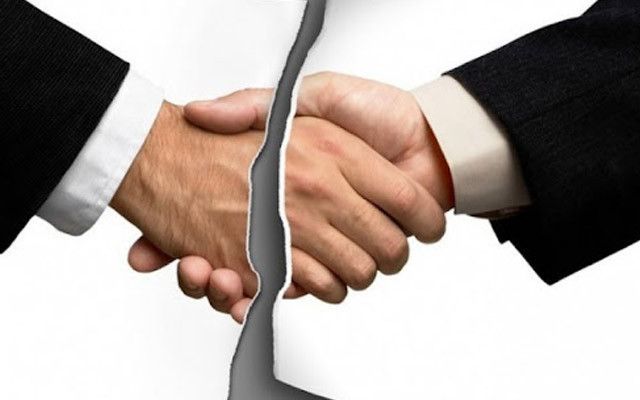
The contract with the lawyer who asked uncomfortable questions about the distribution of assignments and payment for services in the free legal aid system was not extended.
The situation was discussed at the last meeting of the Bar Council of Ukraine on April 30.
Oksana Kadenko, a member of the UNBA from Khmelnytsky region, chairman of the UNBA Committee on Legal Aid, explained that the lawyer had previously tried to find out the reasons for the refusal, but the regional center of free legal aid explained its decision by the lack of justified need, i.e., want. But this argument cannot be accepted, because at the same time competitions are being announced. That is, there is still a need to conclude contracts with lawyers. Perhaps this was done to deprive the lawyer of access to information about problems in the system.
So what exactly is the «justified need to engage lawyers to provide free secondary legal aid» that is used by the FLA system as a criterion for announcing competitions and deciding on the conclusion of contracts with lawyers? O. Kadenko also said that earlier this need was explained by the discretion of the person making the relevant decision. Such a paradox, when the objective need is actually determined by subjective considerations, requires the study of statistical indicators, namely: how many advocates fulfill assignments, what kind of assignments they are, how many contracts are terminated or not extended, the figures of negative assessment of internal monitoring, etc.
Yuriy Gordeev, a member of the UNBA from Ternopil region, who also works at the local FLA center, noted that in their practice, contracts were signed with all lawyers who were in the register and who expressed a desire. He suggested that there was some kind of personal conflict in the situation under consideration. At the same time, Y. Gordeev expressed his belief that if a lawyer passed the competition procedure, he had the right to work with the system and the administrative staff should sign a contract with each lawyer. He was supported by Victoria Gaivoronska, head of the Kharkiv Regional Bar Council, who believes that there can be no quantitative quotas. And if a lawyer is included in the register of lawyers who have the right to provide free legal aid, the center has an obligation to conclude a contract with him or her.
Lidiya Izovitova, the President of UNBA, BCU suggested looking at the problem in the context of how the UNBA can help those who find themselves in a similar situation. The lawyers who passed the competition and were included in the register are entitled to provide free legal aid, and this right, if violated, is subject to protection. Although the competition itself also has a dubious legal basis. After all, a person who has received the right to practice law can obviously also provide legal aid in the FLA system. However, these considerations of the Bar are unlikely to be accepted by the state body. Vadym Krasnyk, Head of the UNBA Secretariat, also doubts the feasibility of the competition. He suggested that the case in question is not the only one among the nine thousand lawyers in the register, and in fact, many of them may not have contracts.
Following the discussion of the issue, the participants of the meeting concluded that the state (represented by the FLA centers) has an obligation to conclude contracts with lawyers who have passed the competition and have been included in the register of lawyers providing free secondary legal aid. To protect lawyers, the relevant provision should be enshrined in the Procedure and Conditions for Concluding Contracts with Lawyers Providing Free Secondary Legal Aid (Cabinet of Ministers Resolution No. 8 of 11.02.2012). The Bar Council of Ukraine will address the Government and the Ukrainian Parliament Commissioner for Human Rights with the relevant proposals.
Popular news
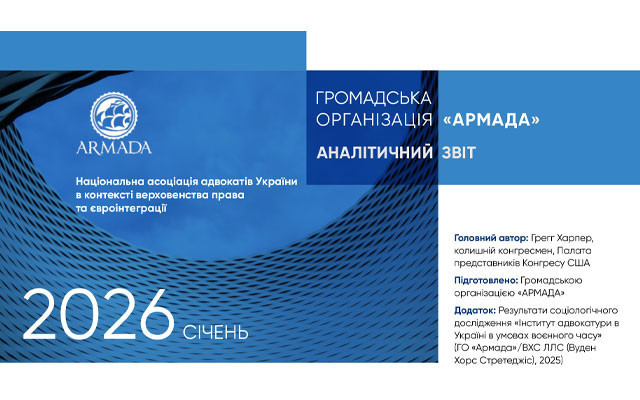
European integration
A translation of the report on advocacy presented to the European Parliament has been published
A translation of a research report on the Ukrainian advocacy profession in wartime, previously presented to the European Parliament in Brussels, has been published. The document is presented as a basis for discussion on the rule of law, Ukraine's European integration aspirations, and countering Russian disinformation in the legal sphere.
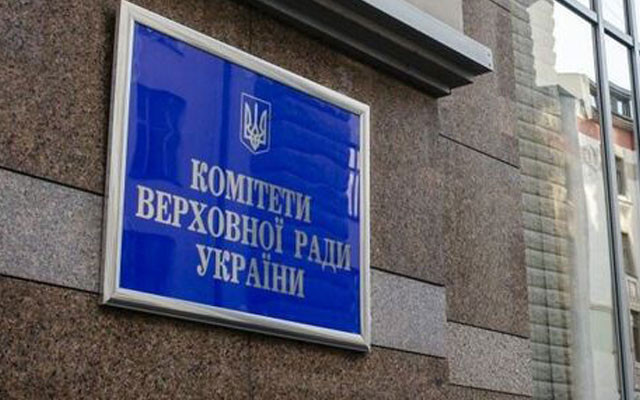
Legislation
The Verkhovna Rada Committee criticized the format of the government working group on advocacy
The implementation of the Roadmap on the rule of law (approved by Cabinet of Ministers Resolution No. 475-r of May 14, 2025) in relation to advocacy raises the practical question of who exactly should prepare legislative changes and how.
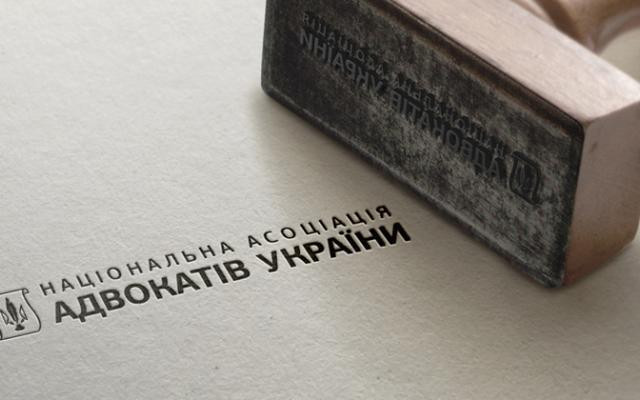
Self-government
The BCU demands a review of the composition of the government working group on reforming the advocacy profession
The President of the UNBA, BCU Lidiya Izovitova, appealed to the Cabinet of Ministers of Ukraine to review the composition of the working group on improving legislation in the field of advocacy and legal practice.
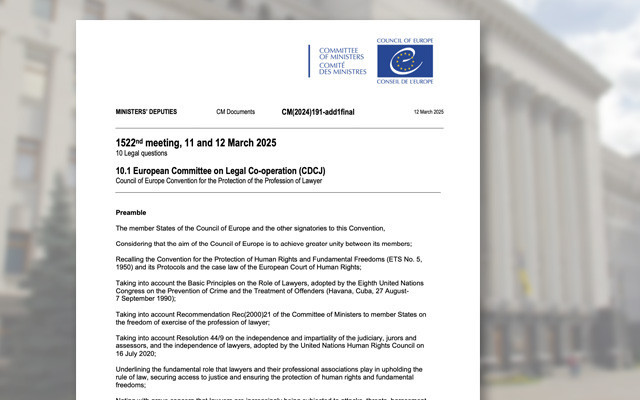
Guarantees of the practice of law
The President has determined, who will sign the Convention for the Protection of the Profession of Lawyer
President of Ukraine Volodymyr Zelenskyy authorized Ukraine's Permanent Representative to the Council of Europe Mykola Tochytskyi to sign the Council of Europe Convention for the Protection of the Profession of Lawyer.

Discussion
Why lowering the age of marriage lacks legal logic
Although until 2012 there was a provision in family law that allowed children to marry from the age of 14 under certain circumstances, its return to Ukrainian law would contradict international obligations and the logic of criminal law.
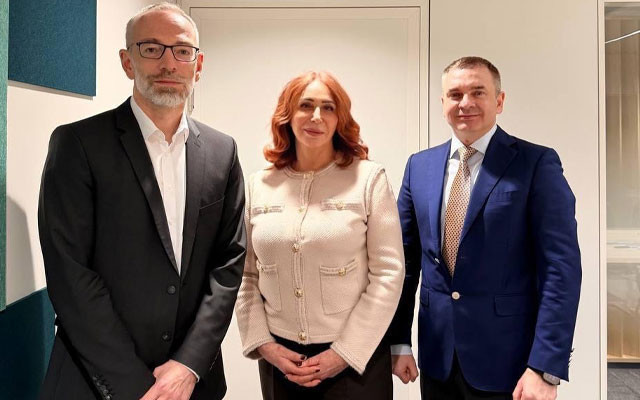
European integration
Open dialogue between the UNBA and the European Commission on the path to EU
The Ukrainian National Bar Association held a working meeting in Brussels with Mr Wolfgang Nozar, Head of Unit for Governance, Rule of Law and Financial Assistance, Directorate-General for Enlargement and Eastern Neighbourhood (DG ENEST), European Commission.

Self-government
A report on Ukrainian advocacy was presented in the European Parliament
Can a shadow report on advocacy replace the political framework of the Roadmap on the rule of law with demands for the restructuring of self-government? Where is the line between accountability and the seizure of institutions? And how can we respond to narratives with data rather than impressions?
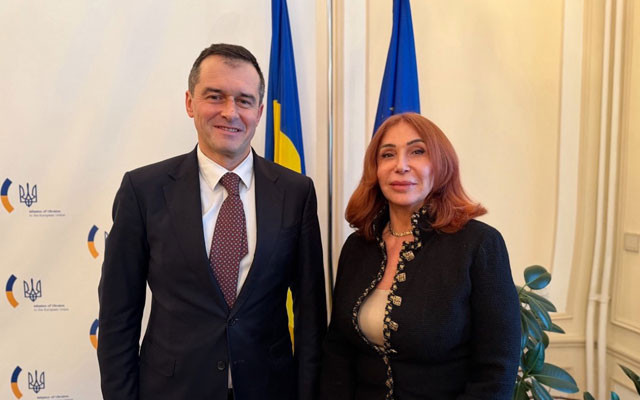
European integration
UNBA and Ukraine's representation to the EU have synchronized their priorities
On February 5, in Brussels, the President of the UNBA, BCU Lidiya Izovitova held a working meeting with the Ambassador Extraordinary and Plenipotentiary of Ukraine, Representative of Ukraine to the European Union Vsevolod Chentsov.
Publications

Volodymyr Matsko Extradition as a systemic form of rights violations

Victoria Yakusha, Law and Business The anti-corruption vertical cannot «take care» of the Bar as an institution, - acting head of the HQDCB

Censor.net Protecting advocates – protecting justice: addressing concerns about the new law

Ihor Kolesnykov A BRIEF SUMMARY REGARDING THE APPLICATION OF THE ORDER ON EXTENDED CONFISCATION IN LATVIA REGARDING FINANCIAL ASSETS OF…

Valentyn Gvozdiy WORKING IN A WAR ZONE

Lydia Izovitova Formula of perfection

Sergiy Vylkov Our judicial system is so built that courts do not trust advocates

Iryna Vasylyk Advocacy in the proclamation of Independence of Ukraine
